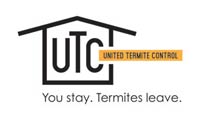Exploring Orange Oil: A Natural Alternative for Termite Control
In pest management, termite control stands out as a critical component in safeguarding infrastructure and homes. These minuscule wood-destroying creatures can wreak significant damage, costing billions of dollars annually in repair costs globally. Traditional methods to combat termites have largely relied on chemical treatments, which, while effective, pose environmental and health risks. However, in recent years, the Orange Oil Method for Termite Control has emerged as an eco-friendly alternative, drawing attention from homeowners eager for effective yet natural solutions.
Orange oil, derived from the skins of oranges, is packed with d-limonene, an active compound credited with its pest-eliminating properties. However, what makes this method truly intriguing is not just its effectiveness but also its environmental impact. As many seek sustainable living practices, choosing solutions that mitigate harm to the ecosystem has never been more vital. Furthermore, for those suffering from chemical sensitivities, the appeal of using a safer, natural alternative is undeniable.
The Science Behind Orange Oil in Pest Control
To understand the Orange Oil Method for Termite Control, we first need to delve into its main ingredient: d-limonene. This compound is toxic to termites but has minimal risks for humans and pets. When termites come into contact with d-limonene, it dissolves their exoskeleton and disrupts cell membranes, leading to dehydration and eventual death. The reaction is rapid, often proving effective upon direct application. Additionally, orange oil emits a citrus fragrance that keeps your living space fresh, a pleasant contrast to the harsh odors associated with traditional chemical treatments.
Benefits of Using Orange Oil for Termite Control
Orange oil has numerous commendable advantages:
- Eco-Friendly Pest Control: One of the strongest selling points of orange oil is its natural composition. It breaks down quickly in the environment, reducing any potential long-term impact. This offers peace of mind for ecologically conscious individuals and communities.
- Localized Treatment: The application of orange oil is typically localized, meaning it targets specific areas of infestation without affecting the entire property. This prevents unnecessary exposure to non-affected zones, preserving beneficial insects and organisms in the ecosystem.
- Minimal Disruption: One prominent downside of many termite treatments is the level of disruption they cause to households. Orange oil treatments usually don’t require homeowners to vacate their premises, allowing them to stay comfortably during the process.
- Synergistic with Other Pest Control Methods: For those intrigued by integrated pest management, orange oil can work synergistically with other methods, offering layered protection against infestations.
Application of Orange Oil: What Homeowners Should Know
Implementing the Orange Oil Method for Termite Control is straightforward, but like any pest control treatment, precision is key. Here’s what the application process involves:
- Inspection and Identification: Begin with a professional, comprehensive inspection of your property. Identifying the extent of the termite infestation is crucial for targeted treatment.
- Drilling and Injection: Following identification, tiny holes are drilled into areas of the identified infestation. Through these holes, orange oil is injected, targeting and eradicating the infestation directly.
- Monitoring: Post-treatment, regular checks ensure that the solution is effective and that no further infestations are emerging.
Limitations and Considerations
While orange oil is an effective natural termite control method, it has limitations. Its ability to penetrate wood is restricted, making it best suited for localized drywood termite infestations rather than subterranean termites. Because the treatment only kills termites on contact, it may require multiple applications to ensure thorough extermination. Additionally, its success hinges on accurate detection, as untreated termite galleries can persist if missed during inspection. For optimal results, professional expertise in termite identification and application is recommended.
Comparisons with Traditional Methods
An integral part of understanding the Orange Oil Method for Termite Control is comparing it with traditional methods:
- Chemical Treatments: These often involve barriers or soil treatments using pesticides. While potent, they have known environmental and health impacts and require the evacuation of the premises.
- Heat Treatments: This uses high temperatures to eradicate termites but demands vacating the building and can damage heat-sensitive furnishings.
- Fumigation: Offers whole-home coverage but involves significant preparation and potential health risks from chemical exposure.
Orange oil presents a middle ground—offering natural termite control without the significant drawbacks associated with its traditional counterparts.
Termite Prevention: Beyond Immediate Treatment
Termite prevention is paramount after addressing an infestation. Here’s where a holistic approach can help:
- Regular Inspections: Schedule termite inspections annually to catch any new infestations early.
- Moisture Control: Since termites thrive in moist environments, fixing leaks, using dehumidifiers, and ensuring proper drainage around the foundation of your home are critical measures.
- Barriers and Baits: Physical barriers and baiting systems complement the Orange Oil Method for Termite Control by providing continuous protection.
Innovating Natural Pest Control: The Future Horizon
The search for natural pest control is constantly evolving, with orange oil emerging as a promising solution. However, it is just one part of a broader movement toward eco-friendly pest management. The industry is actively researching plant-based alternatives and innovative application methods to enhance effectiveness and sustainability. Scientists and pest control professionals are exploring botanical extracts, essential oils, and integrated pest management techniques to develop safer, more reliable solutions.
As consumer demand for non-toxic alternatives grows, companies are investing in cutting-edge technology to refine natural formulas. The goal is to balance efficiency with environmental responsibility, reducing reliance on synthetic chemicals while ensuring long-term pest control success. With ongoing advancements, the future of pest management may see even more powerful plant-derived solutions, offering homeowners and businesses sustainable ways to combat infestations. Orange oil is just the beginning of a larger, greener revolution in the pest control industry.
Final Thoughts and Going Forward with Eco-Friendly Solutions
While the Orange Oil Method for Termite Control is not suited to every situation, it’s an empowering option for eco-conscious homeowners wishing to embrace natural pest control without compromising efficacy. As with any treatment option, consulting with professionals from a reputable company like United Termite Control can guide you in determining the most suitable strategy tailored to your specific needs.
United Termite Control, with our vast experience and commitment to sustainability, offers an array of termite treatment options, including this natural alternative, ensuring your home remains protected from infestations without harming the environment. Visit our blog today to explore more eco-friendly pest control options or schedule a professional inspection to safeguard your home naturally.

